Motivation for businesses to "take off"
Ms. Duong Thu - Director of the Institute for Strategic Leadership Development Research (SLEADER) affirmed that cutting administrative procedures will help businesses save time, operating costs and, more importantly, minimize risks arising from complex and opaque processes. "We will directly invest the freed resources in production, research and development and market expansion," said Ms. Duong Thu.
Director Duong Thu analyzed that 100% of procedures are carried out online, smoothly, seamlessly, effectively and transparently, which will contribute to creating a truly fair and transparent business environment. When all processes are digitized and made public, the "rules of the game" will be clearer for everyone. This will minimize the space for harassment and negativity, while at the same time creating a solid trust for businesses when working with public authorities. Not to mention, when procedures are quick and compliance costs are reduced, businesses will be more flexible and decisive in investment and business decisions, seize new opportunities, and bring products and services to market faster and more promptly.
“When the Government creates such open “runways”, businesses will be given more motivation and confidence to “take off”. These substantive reforms not only help businesses develop sustainably but also demonstrate a Government that acts, creates, and truly accompanies the development of the business community, contributing significantly to realizing the aspiration of building a prosperous Vietnam” - Ms. Duong Thu shared.
According to Lawyer Nguyen Minh Long - Director of DRAGON Law Firm, in the context of Vietnam's strong efforts to integrate, develop and digitally transform, the simplification of administrative procedures is identified as one of the key solutions to create a favorable business environment, improve the quality of service for people and businesses, and contribute to promoting sustainable economic growth. Streamlining the apparatus and reducing administrative procedures will create a transparent, healthy and competitive business environment and help reduce intermediary levels, save time, costs and prevent and combat corruption and negativity.
According to Lawyer Long, in the past, administrative procedures were a “barrier” for businesses when there was a situation of “each place has its own procedure”, “one way online, one way at the counter”, which led to harassment and negativity from a group of civil servants and public employees receiving documents. In fact, businesses had to spend a lot of money from providing documents to external “lobby” costs to quickly carry out procedures. Streamlining administrative procedures is also an opportunity to overcome the above limitations, while expanding opportunities to attract investment and business.
Commenting on the policy of shifting from pre-inspection to post-inspection (HK); Business condition management must shift from licensing and certification to implementing business conditions and HK, Lawyer Minh Long said: “This is a correct policy, demonstrating a change in the economic leadership. According to the Constitution, citizens are allowed to do what the law does not prohibit. Thus, the change from the phrase “licensing” and “certification” to implementing business conditions demonstrates that awareness. Currently, we have set out many conditional business lines, but after being licensed, whether or not enterprises and individuals fully implement those conditions is not something we really care about. Only when an unfortunate incident occurs is HK work promoted, which is “closing the barn door after the cow has stolen”. Promoting HK work is necessary in managing conditional business lines, avoiding negativity when licensing conditional business lines”.
Effective management for growth
According to Ms. Duong Thu's assessment, reducing intervention and eliminating administrative "barriers", especially through digitization and 100% transparency of procedures as in the Official Dispatch dated May 22, 2025 of Prime Minister Pham Minh Chinh, is an extremely important lever to gradually change, even eliminate the "ask - give" mechanism and the "can't manage, then ban" mindset that has existed for so long.
With the “ask-give” mechanism, which is a “nightmare” for businesses, it can only “survive” when the process is unclear, when there are too many intermediaries and the discretion of the implementing officers. When all procedures are public, standardized in the online environment, with a clear processing roadmap, businesses will interact mainly with the system. This transparency will minimize the space for negativity and unreasonable demands. The rights and obligations of businesses are clearly defined by law, no longer depending on “goodwill” or “relationships” with any individual. This helps businesses to be more confident, more proactive and significantly reduce informal costs.
As for the mindset of “if you can’t manage it, then ban it”, this is really a big barrier to innovation and development, not to mention it is contrary to the principle of “people and businesses are allowed to do what the law does not prohibit, or even has not yet banned”. When the Government is determined to remove “barriers” and promote online administrative procedures, this is not only a change in process but also a transformation in state management thinking - from control to creation, from command to service. When there are modern management tools (such as online systems, shared databases), state agencies will be able to monitor, analyze and make policies based on data, instead of prohibiting them in an extreme way due to lack of information or fear of risks. An open and transparent system also creates counter-pressure, requiring policy makers to find smarter and more flexible management solutions instead of following the “ban” path.
According to Ms. Duong Thu, the world is changing rapidly thanks to new technologies that are increasingly being developed and widely applied, and Vietnam should proactively embrace the opportunities created by technological advances, in which the pioneering role of ministries, branches and localities will play a huge role in creating an attractive investment environment, a high-quality living environment, and ease for businesses and people to do business and live. Therefore, promoting digitalization, automation and the application of new technologies, especially artificial intelligence and big data in handling administrative procedures is an urgent requirement, but not enough. What businesses need is a systemic change of substance, not just a change in form or appeal.
In order for policies to quickly come into practice, Director of the Institute for Strategic Leadership Development Research Duong Thu proposed a number of specific contents to completely cut unnecessary procedures, because in reality, enterprises need concise, transparent procedures that can be completed in one session; Transparent responsibilities and processing time. Accordingly, enterprises only need a digital platform that records the submission time - processing time - person in charge - file status, which will help enterprises feel more secure; Shifting from "management" to "accompanying" enterprises because according to Ms. Thu, many times enterprises are not afraid of difficulties, but are afraid of ambiguity, afraid of sudden policy changes, afraid of falling into the situation of "doing the right thing but still being wrong". Enterprises want management agencies to not only issue regulations but also have a mechanism to guide, support, and answer them in a consistent and timely manner.
“This is a process that cannot be changed overnight. Administrative procedure reform is a “necessary” condition, but the “sufficient” condition is the change in awareness and public service culture of the staff and the continuous and drastic inspection and supervision from the Government as well as from the business community and society. When the head of the Government is determined and continuously promotes policy implementation, we believe that the “ask-give” mechanism will gradually be pushed back and the mindset of “if you can’t manage, then ban” will be replaced by the mindset of “effective management for development” - Ms. Duong Thu affirmed”.
Mr. Dau Anh Tuan - Deputy General Secretary, Head of Legal Department of Vietnam Federation of Commerce and Industry (VCCI):
 |
Mr. Dau Anh Tuan. |
“I have noticed that localities have made a big change in their thinking in implementing administrative reform, especially in granting construction permits. However, to widely deploy and effectively implement this is not easy, so it requires great efforts from the local administrative apparatus.”
Ms. Duong Thu - Director of the Institute for Strategic Leadership Development Research (SLEADER):
 |
Mrs. Duong Thu. |
“Our businesses always want an environment where everything operates based on clear and fair laws, so that we can confidently invest, innovate and contribute to the overall development of the country. These administrative reforms are an important step in that direction!”
Lawyer Nguyen Minh Long - Director of DRAGON Law Firm:
 |
Lawyer Nguyen Minh Long. |
“Harmonizing the rights and interests of enterprises, consumers and the State in reforming administrative procedures means tightening supervision and post-inspection; simplifying business licensing procedures for conditional industries. For enterprises, it helps simplify procedures, increase investment and responsibility of enterprises. For consumers, it helps to use safe products and services. For the State, it helps to strengthen the role of managing and operating the economy. This is the key point in reforming administrative procedures.”
Source: https://baophapluat.vn/doanh-nghiep-duoc-giai-phong-nguon-luc-tu-cai-cach-thu-tuc-hanh-chinh-ky-2-duong-bang-thong-thoang-doanh-nghiep-tu-tin-cat-canh-post551398.html























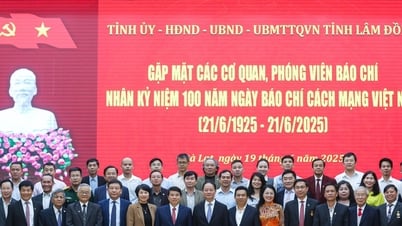
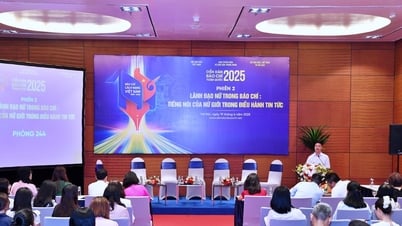

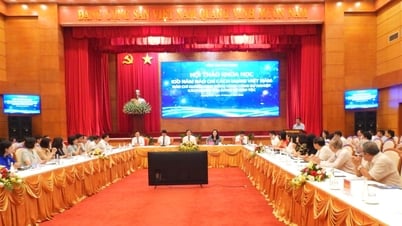































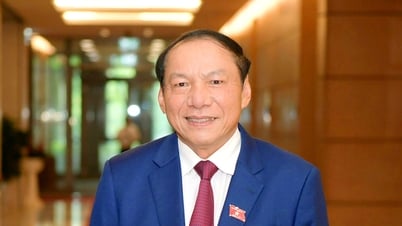








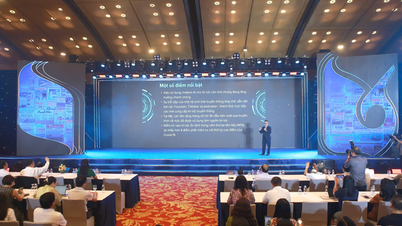








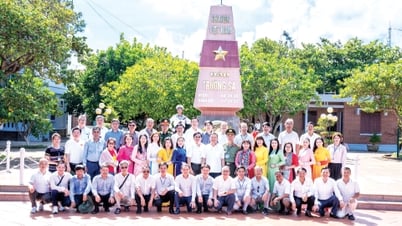






















Comment (0)